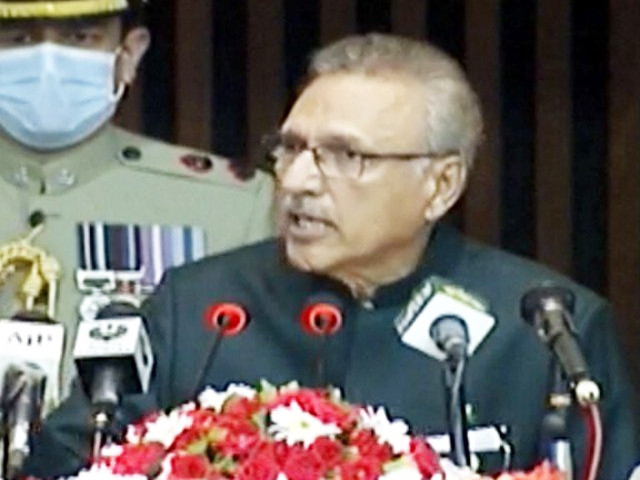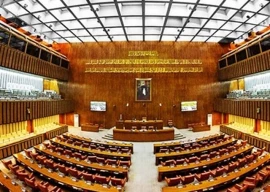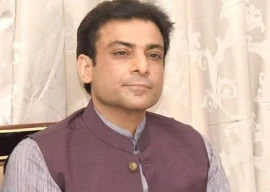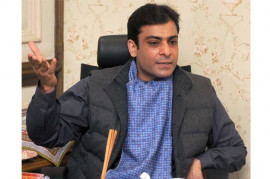
The Lahore High Court (LHC) on Friday directed President Dr Arif Alvi to nominate another person besides the provincial governor to administer oath of the Punjab Chief Minister Office to Hamza Shehbaz in order to end the ongoing political and constitutional crisis in the province.
Chief Justice Muhammad Ameer Bhatti passed the order after Advocate General of Punjab Ahmad Awais failed to satisfy the court whether the governor had addressed the relevant authority about his excuse, inability or the reason behind delay in administration of oath.
Chief Justice Bhatti took up a petition filed by CM-elect Hamza against the delay by the Punjab governor in administering him the oath. Hamza was elected on April 16 after securing 197 votes in the Punjab Assembly.
The president, under Article 104 of the Constitution, would nominate another person for the specific purpose to wrap up the prevailing crisis, following the fact that people were already suffering on account of a non-functional provincial government for the last 21 days, the court said.
Read LHC seeks Punjab governor's response over CM oath delay
Article 104 stipulates that when the governor, by reason of absence from Pakistan or for any other cause, is unable to perform his functions, the provincial speaker or in his absence any other person as the president may nominate shall perform the functions of governor until the governor returns.
Earlier despite being given two opportunities, Advocate General Awais failed to satisfy the court whether the governor had addressed the relevant authority in black and white about his inability or the reason why the matter of administration of oath was being delayed.
The advocate general said, “The governor is not answerable to the court and he (governor) will write to the president of Pakistan, describing the causes and reasons why the oath is not being administered.”
During the proceedings, the advocate general raised objection, arguing that the Punjab Assembly speaker had not been made respondent in this petition. Further, he added that in the absence of the governor, usually the speaker administers the oath.
The chief justice, while disagreeing with the advocate general’s viewpoint, remarked that how could the court assume that the governor would be absent on that day. Awais replied that as per the Constitution, when the governor was unable to perform his functions, the speaker of the provincial assembly would act in his place.
Read more Buzdar’s resignation challenged in LHC
About the governor’s reluctance in administering the oath, Chief Justice Bhatti asked Awais if the governor had written to the president about the reasons as to why the matter was being delayed. Awais said, “The governor has immunity and is not bound to give explanation before the court.”
The CJ remarked, “My point is not the immunity, my point is that the governor is violating the Constitution. If the governor will not explain then who will answer the prevalent Constitutional crisis in the province.”
The advocate general argued that the governor might write to the president in a couple of days. “You mean the governor is not writing today,” the chief justice asked. “You mean it does not matter what the Constitution says or if it is violated. The court will not call him (governor) honourable if he violates the Constitution.”
After the first break, Awais assured the court that the governor would write to the president within 24 hours and give his reasons. When the chief justice asked if the governor “gave you any reason for his inability” to administer the oath, the advocate general replied that governor would write to the president.
Hamza’s lawyer requested the court to pass an order, saying that the matter was being delayed on one pretext or the other.


1731046534-0/trump-(22)1731046534-0-165x106.webp)


-(14)1720679028-0/(image-blakelively-on-Instagram)-(14)1720679028-0-165x106.webp)















COMMENTS (2)
Comments are moderated and generally will be posted if they are on-topic and not abusive.
For more information, please see our Comments FAQ